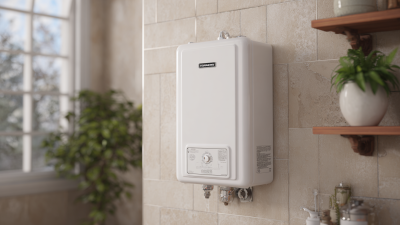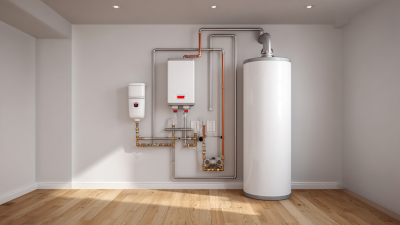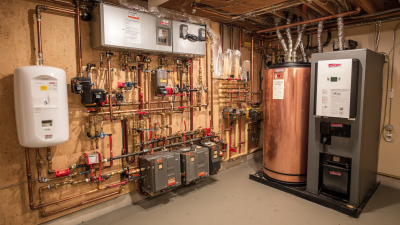
In today's energy-conscious world, selecting the right tankless water heater is crucial for maximizing home efficiency and minimizing utility costs. According to the U.S. Department of Energy, tankless water heaters can be up to 34% more energy-efficient than traditional water heaters for homes that use 41 gallons or less of hot water daily. This efficiency not only translates to substantial savings on energy bills but also extends the lifespan of the unit, with many providing hot water on demand for over 20 years. With a variety of models and technologies available, understanding your specific needs and the potential return on investment is paramount. This guide aims to equip homeowners with the essential insights required to make informed decisions about tankless water heaters that align with their efficiency goals.
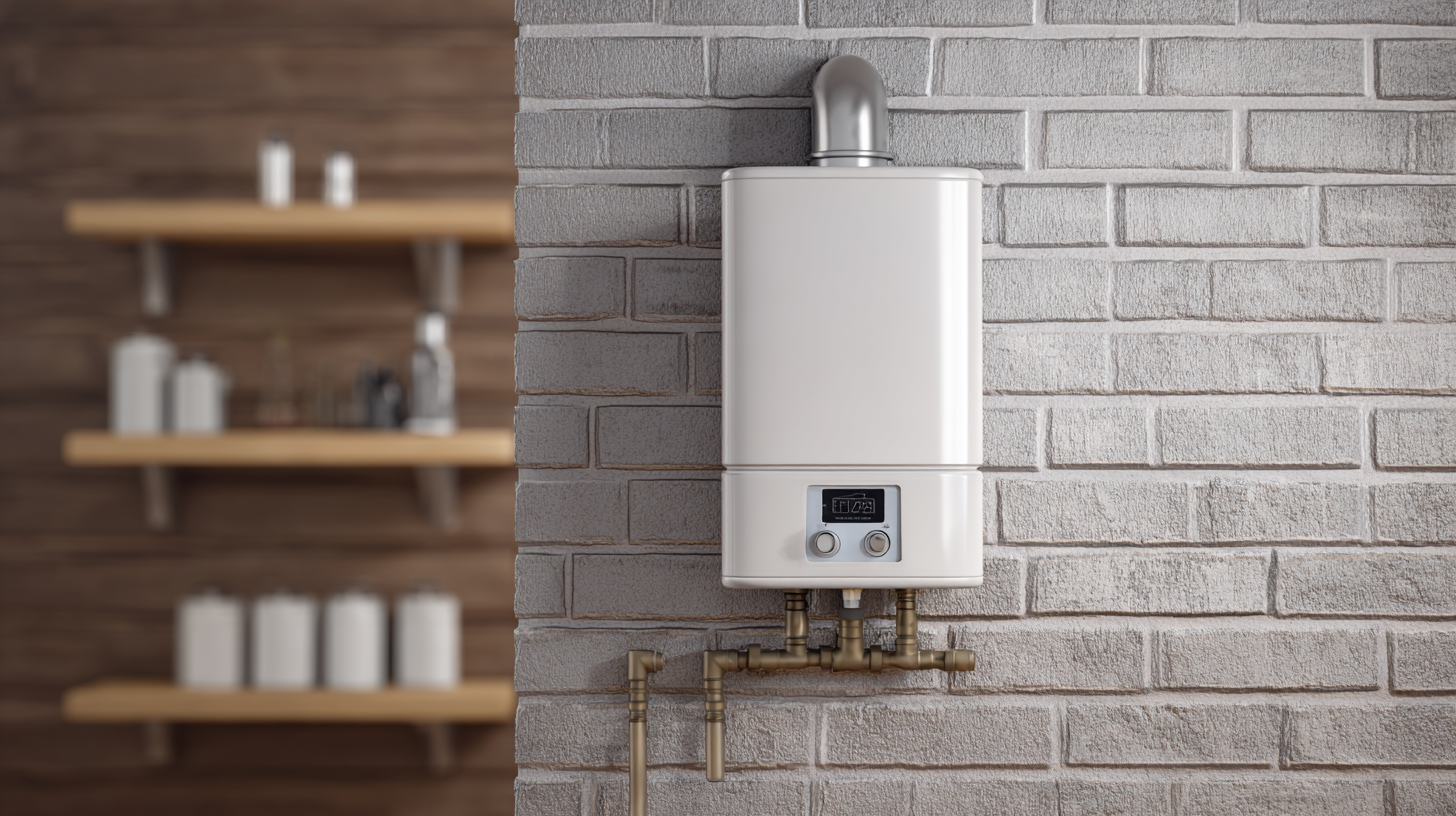
When considering energy efficiency for your home, tankless water heaters emerge as a popular choice for many homeowners. They provide hot water on demand, eliminating the need for a storage tank, which not only saves space but also reduces energy waste. With traditional tank heaters, energy is continually consumed to keep water hot, even when it's not in use. In contrast, tankless models activate only when hot water is needed, thereby enhancing overall energy efficiency.
Recent discussions have raised concerns about energy efficiency standards for gas tankless water heaters. The US Senate's decision to remove these standards could lead to increased energy waste and pollution, which is detrimental to our environment. However, homeowners can still capitalize on the benefits of tankless water heaters, particularly electric models, which are gaining traction as a more environmentally friendly option. They often qualify for tax credits and rebates, making the transition to a more efficient system economically favorable. With proper guidance and understanding, investing in a tankless water heater can significantly lower energy bills and lessen environmental impact.
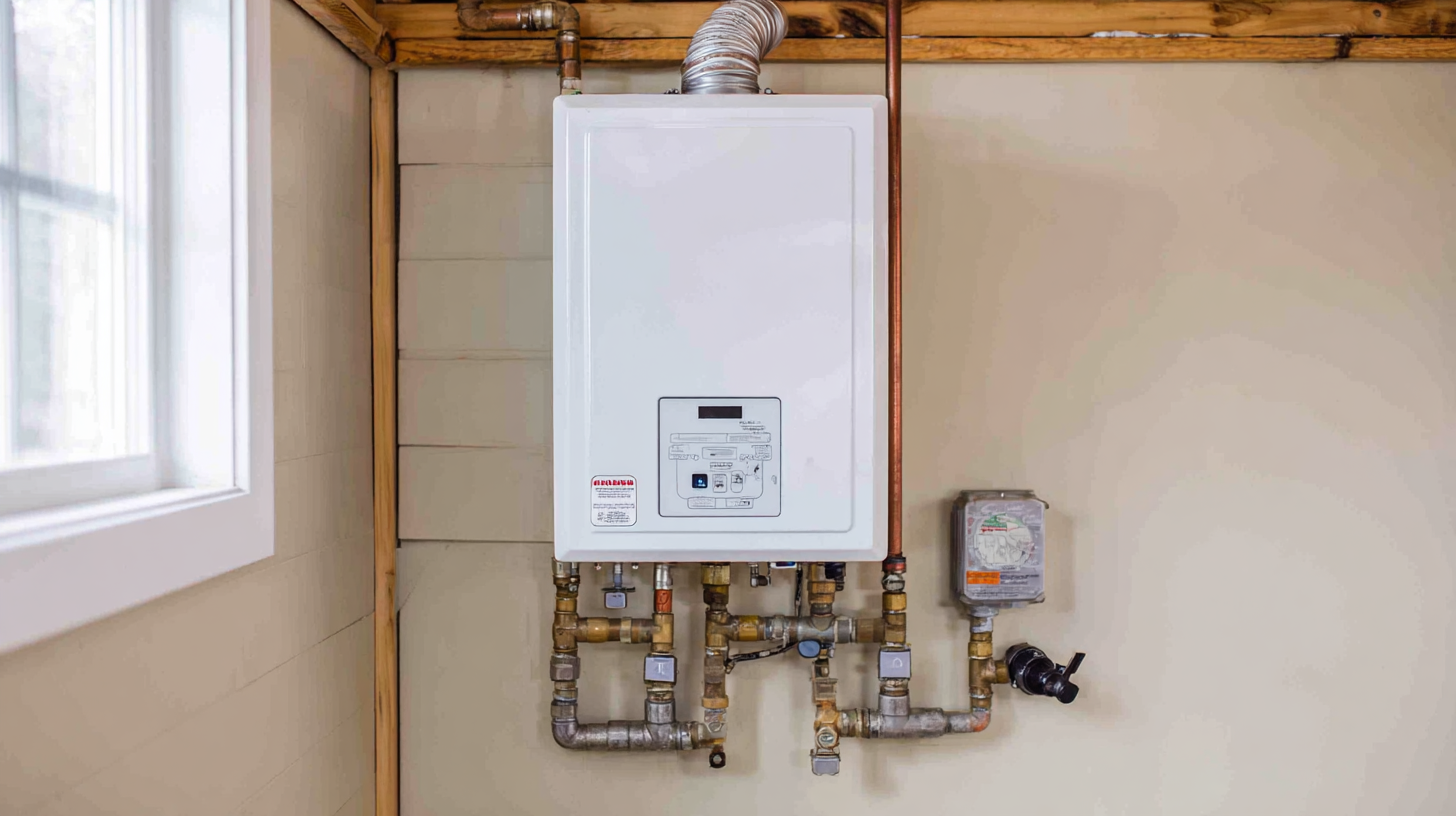 When selecting a tankless water heater for your home, it's essential to consider several key factors that influence efficiency and performance. First, assess your household's hot water demand. Calculate the maximum flow rate you'll need, measured in gallons per minute (GPM), by identifying simultaneous fixtures like showers, sinks, and appliances that may require hot water at the same time. This will help determine the appropriate capacity of the heater.
When selecting a tankless water heater for your home, it's essential to consider several key factors that influence efficiency and performance. First, assess your household's hot water demand. Calculate the maximum flow rate you'll need, measured in gallons per minute (GPM), by identifying simultaneous fixtures like showers, sinks, and appliances that may require hot water at the same time. This will help determine the appropriate capacity of the heater.
Another crucial factor is the temperature rise required for your specific location. Depending on your incoming water temperature and the desired output temperature, you may need a unit with a higher energy output. Check the manufacturer’s specifications for the temperature rise capacity to ensure optimal performance.
Tips: Look for Energy Star-rated models to ensure energy efficiency, which can lead to significant savings on utility bills over time. Additionally, consider technologies like modulating gas burners, which adjust the heat output based on demand, ensuring consistent and efficient hot water delivery. Finally, don't forget to factor in installation requirements and space, as tankless units can have different venting and clearance needs compared to traditional water heaters.
When selecting a tankless water heater, understanding your household's hot water demand is crucial for optimal performance. Start by assessing your daily hot water usage, which varies depending on the number of occupants and lifestyle habits. For instance, consider factors such as the frequency of showers, the use of appliances like dishwashers and washing machines, and even the timing of peak usage. By calculating the maximum flow rate you'll need at any given time, you can determine the appropriate size of the tankless water heater that will meet your requirements efficiently.
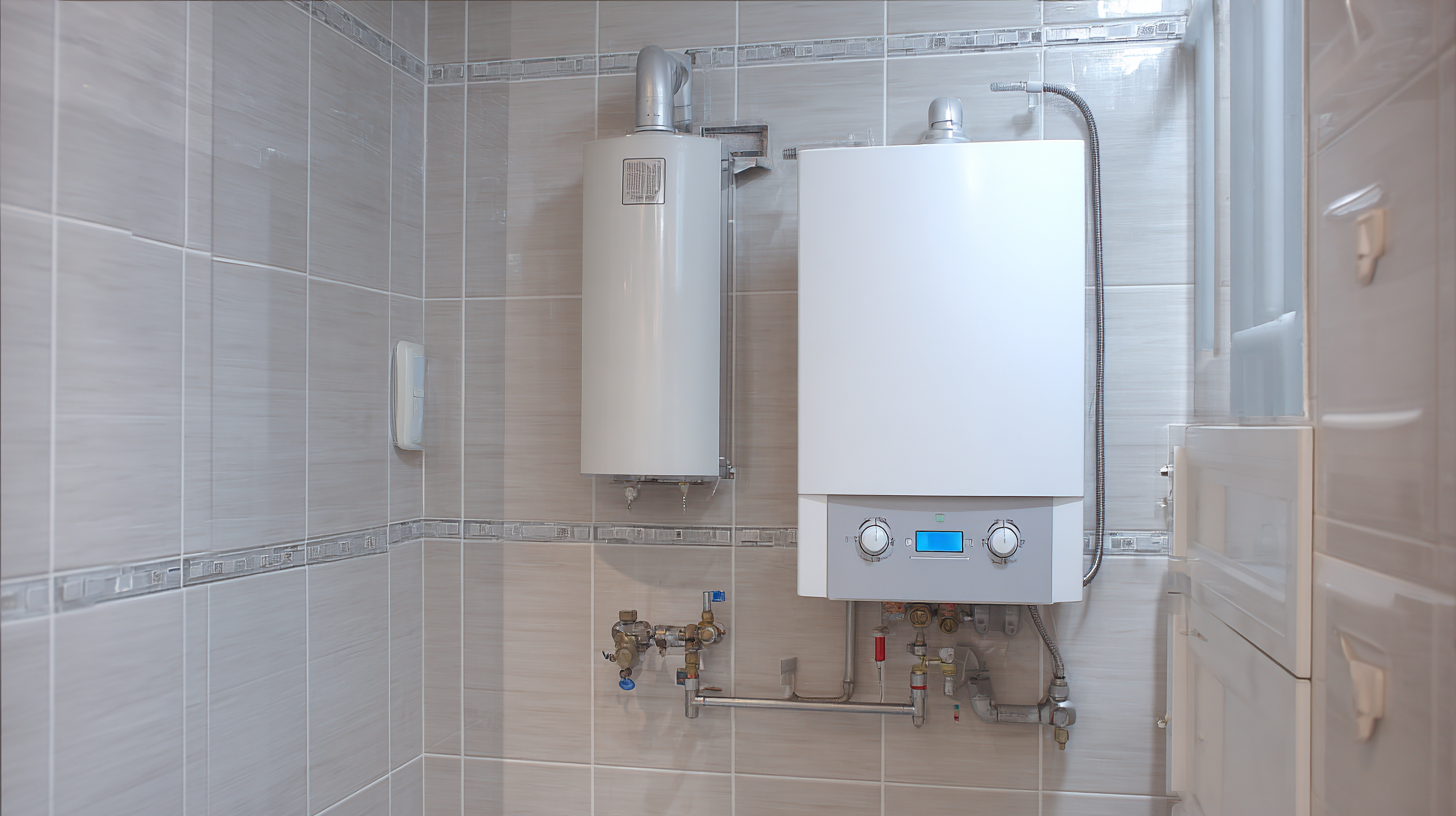
Next, it’s important to factor in the temperature rise your incoming water will need during colder months. The difference between the incoming water temperature and your desired output temperature will dictate how powerful the unit must be to provide adequate hot water. Many tankless units list their maximum flow rates and temperature rise capabilities, allowing you to compare models effectively. By thoroughly analyzing your hot water demand and understanding the performance specifications of each unit, you can choose a tankless water heater that not only meets your home's needs but also enhances energy efficiency.
When selecting a tankless water heater, a crucial decision revolves around choosing the right energy source.
Electric and gas tankless water heaters each have their advantages and considerations that can affect your home's efficiency needs.
Electric models generally require less maintenance and are easier to install, making them a popular choice for many homeowners.
They are also highly energy-efficient, converting nearly all electricity used into hot water. However, their performance may be limited if multiple outlets demand hot water simultaneously.
On the other hand, gas tankless water heaters tend to heat water faster, offering a higher flow rate, which is ideal for larger households with multiple hot water needs.
They typically have lower operating costs if natural gas is readily available, but installation costs can be higher due to the need for proper ventilation and gas line requirements.
Tips:
When deciding on an energy source, consider your household's specific hot water usage patterns and the availability of energy resources in your area.
Evaluate the long-term costs of operation and maintenance for each type. It may be beneficial to consult with a professional to assess which option aligns best with your efficiency goals and budget.
When considering a tankless water heater for your home, understanding installation requirements is crucial for optimal efficiency. First, these units typically require a higher gas supply pressure for models that operate on natural gas. This means you may need to upgrade your gas line or ensure your existing system can handle the demand. Additionally, proper ventilation is essential to prevent hazardous gas buildup. Installing an external venting system can increase the safety and efficiency of the heater, allowing it to operate at peak performance.
Maintenance is another key factor in ensuring the longevity of a tankless water heater. Regular descaling is necessary to combat mineral buildup, particularly in areas with hard water. This process involves flushing the system with a descaling solution annually to maintain efficiency and prolong lifespan. Furthermore, routine checks on the heating elements and inlet filters can help prevent common issues, keeping your unit operating smoothly. By adhering to these installation and maintenance principles, you can maximize the benefits of your tankless water heater, ensuring it meets your home's efficiency needs for years to come.
